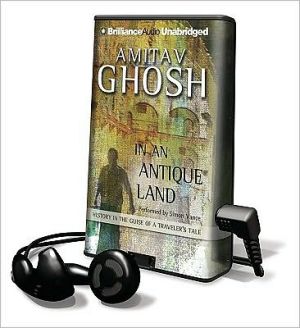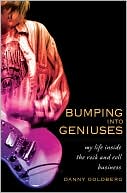In an Antique Land: History in the Guise of a Traveler's Tale
In an Antique Land is a brilliant hybrid, a subversive history in the guise of a traveller's tale. It tells the story of two Indians in Egypt. The first was a twelfth-century slave; the second is Amitav Ghosh, who stumbled upon the slave in the margins of letters that were written by the slave's master. His curiosity piqued - even ill-defined, the slave's presence in the records of medieval history was completely out of the ordinary - Ghosh journeyed to Egypt in 1980 to try to fill in the...
Search in google:
Once upon a time an Indian writer named Amitav Ghosh set out to find an Indian slave, name unknown, who some seven hundred years before had traveled to the Middle East. The journey took him to a small village in Egypt, where medieval customs coexist with twentieth-century desires and discontents. But even as Ghosh sought to re-create the life of his Indian predecessor, he found himself immersed in those of his modern Egyptian neighbors.Combining shrewd observations with painstaking historical research, Ghosh serves up skeptics and holy men, merchants and sorcerers. Some of these figures are real, some only imagined, but all emerge as vividly as the characters in a great novel. In an Antique Land is an inspired work that transcends genres as deftly as it does eras, weaving an entrancing and intoxicating spell. Publishers Weekly In a leisurely blend of travelogue, history and cross-cultural analysis, Indian writer Ghosh reconstructs a 12th-century master-slave relationship that confounds modern concepts of slavery. Abraham Ben Yiju, a prosperous Tunisian Jewish merchant based in medieval Cairo, resettled in Aden, then spent two decades on India's Malabar Coast, where he hired a slave or servant, probably of Indian origin, named Bomma. Bomma acted as Ben Yiju's business agent and made overseas trips for him. In medieval India and the Middle East, Ghosh points out, servitude was often a career opportunity, the principal means of recruitment into privileged strata of the army and bureaucracy. Researching in letters and documents in Egypt, where he lived for several years, Ghosh ( The Shadow Lines ) evokes a world of mud-walled houses and class warfare between Egyptian laborers and landowners. He also writes vividly of southern India, a tapestry of castes, cults and worship of spirit-deities. (Apr.)
\ Publishers Weekly - Publisher's Weekly\ In a leisurely blend of travelogue, history and cross-cultural analysis, Indian writer Ghosh reconstructs a 12th-century master-slave relationship that confounds modern concepts of slavery. Abraham Ben Yiju, a prosperous Tunisian Jewish merchant based in medieval Cairo, resettled in Aden, then spent two decades on India's Malabar Coast, where he hired a slave or servant, probably of Indian origin, named Bomma. Bomma acted as Ben Yiju's business agent and made overseas trips for him. In medieval India and the Middle East, Ghosh points out, servitude was often a career opportunity, the principal means of recruitment into privileged strata of the army and bureaucracy. Researching in letters and documents in Egypt, where he lived for several years, Ghosh The Shadow Lines evokes a world of mud-walled houses and class warfare between Egyptian laborers and landowners. He also writes vividly of southern India, a tapestry of castes, cults and worship of spirit-deities. Apr.\ \ \ \ \ Library JournalGhosh, an Indian Hindu, first read about a medieval 12th century Jew and his Indian slave while a student at Oxford. He became fascinated almost to the point of obsession. After studying Arabic, he enrolled at a university in Alexandria, Egypt to perform further research. A professor found him lodgings in an nearby village. This book recounts his attempt to merge the two stories: life in modern Egyptian villages not dissimilar to that of 5000 years ago, and his search for the Indian slave. The merger doesn't quite work. Individually, both subjects are fascinating; together they are less so. In addition, Ghosh's language and writing style are both stilted. Still, Ghosh's subject is exotic yet intimate, and academic and public libraries should consider purchasing his account.-- Paula M. Zieselman, Fulbright & Jaworski, New York\ \ \ Kirkus ReviewsAn engrossing chronicle of historical detection smoothly integrated into a subtly shaped picture of village life in modern Egypt; by an Indian novelist (The Circle of Reason, 1986) of great sensitivity and power. Enrolled as a cultural-anthropology graduate student at the University of Alexandria, Ghosh settled in 1980 into the Egyptian farming village of Lataifa. Two years earlier, he had become interested in ancient manuscripts found in a storeroom of a tenth- century Cairo synagogue; included in the cache were letters from a Jewish trader, who mentioned his Indian slave. Intrigued, Ghosh pursued the identity of his 12th-century countryman. The author's findings about the daily activities of slave and master make fascinating reading (e.g., that the slave represented his master in financial dealings), and alternating with this historical data are chapters detailing Ghosh's gradual assimilation into the life of Lataifa. His affectionate portraits of the villagers and of their often colorful idiosyncracies (for example, the complicated relationship between the Imam and his estranged first wife) attest to his perceptivity as a sympathetic observer of a rapidly changing society. In a particularly effective passage, he recounts his feelings when, after persistent questioning about his Hindu beliefs, he discovered in himself what he calls "Indians' terror of symbols." And Ghosh is equally astute in detailing the changes wrought by young villagers' departures for jobs in wartime Iraq. While new homes, refrigerators, TVs, and electric generators proliferate, he says, the weakening of family and civic ties proves a high price to pay. Throughout, Ghosh writes with enormous lucidity and flashesof gentle humor, conveying in small and telling details the underlying suspiciousness and insecurity that pervade Egyptian society. Moving in its humanity, revealing in its analyses: an exceptionally satisfying work.\ \








